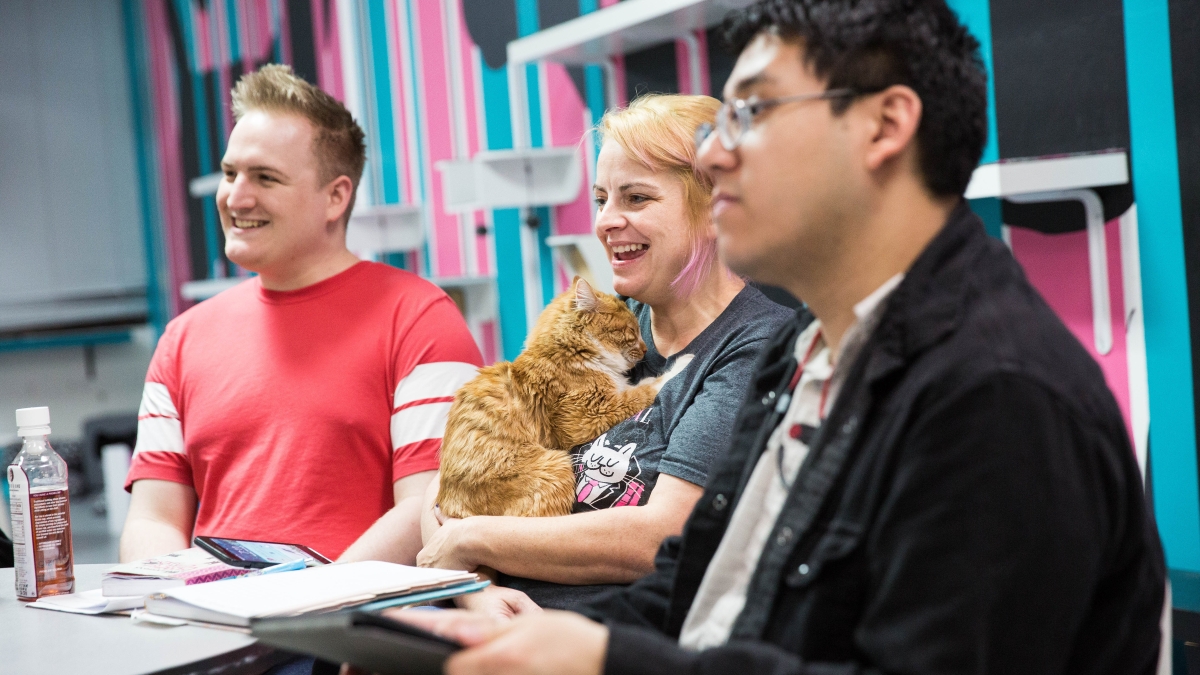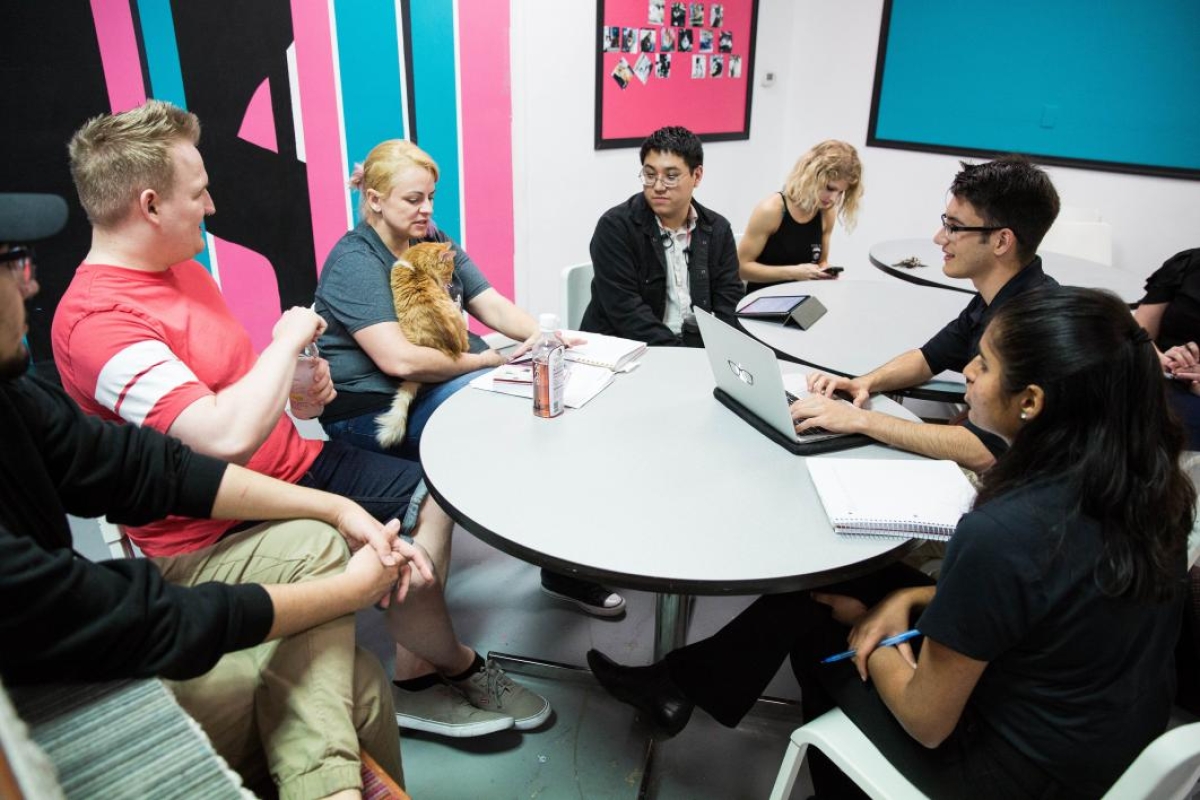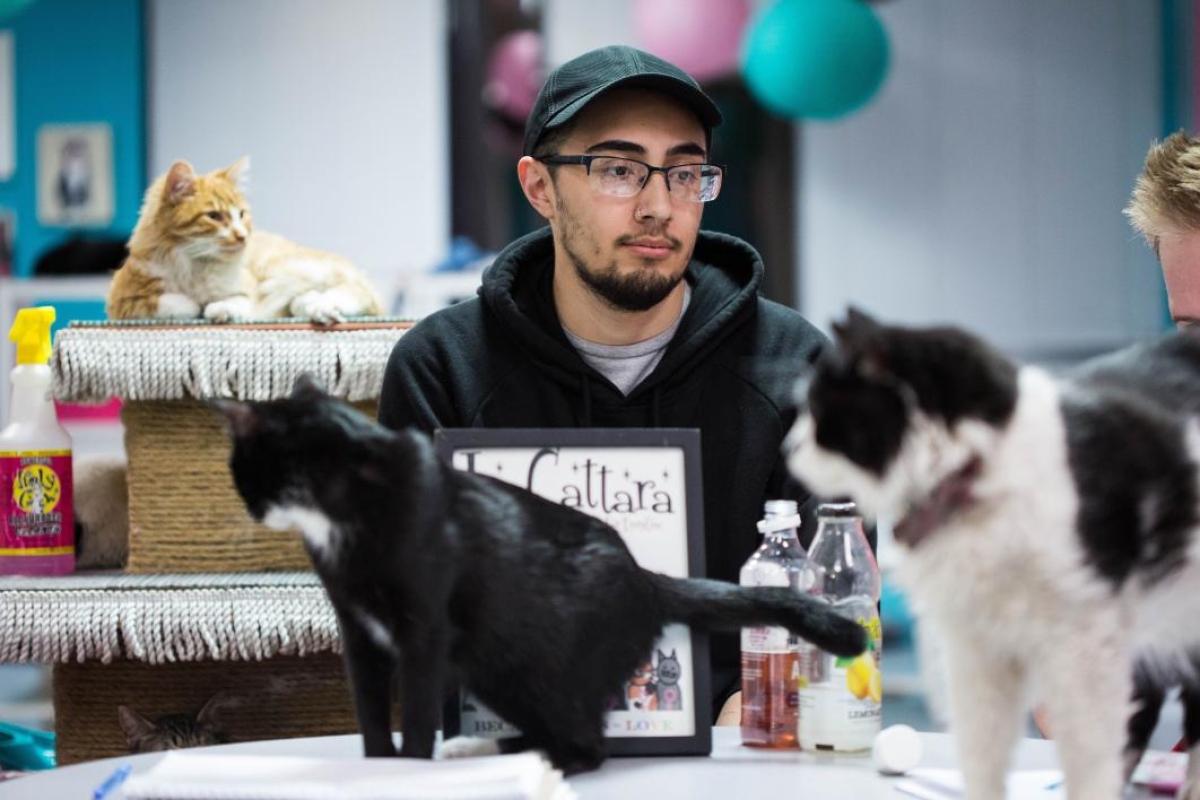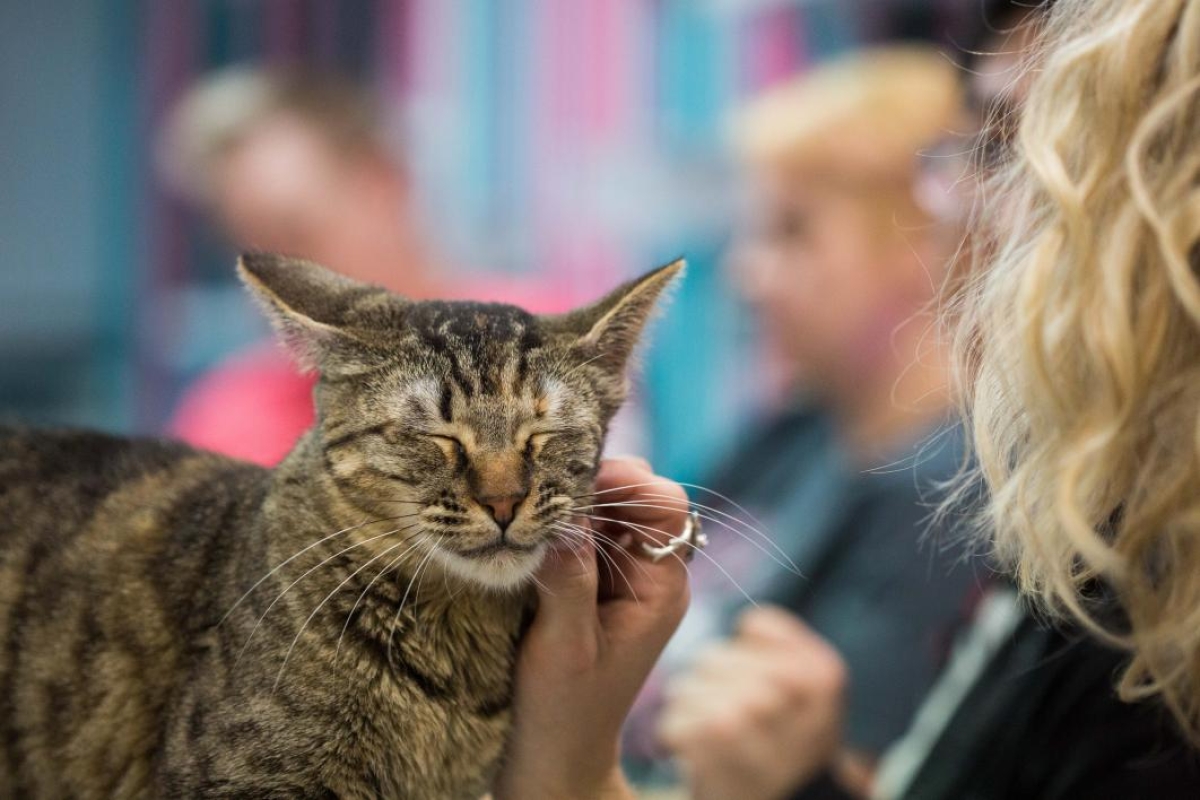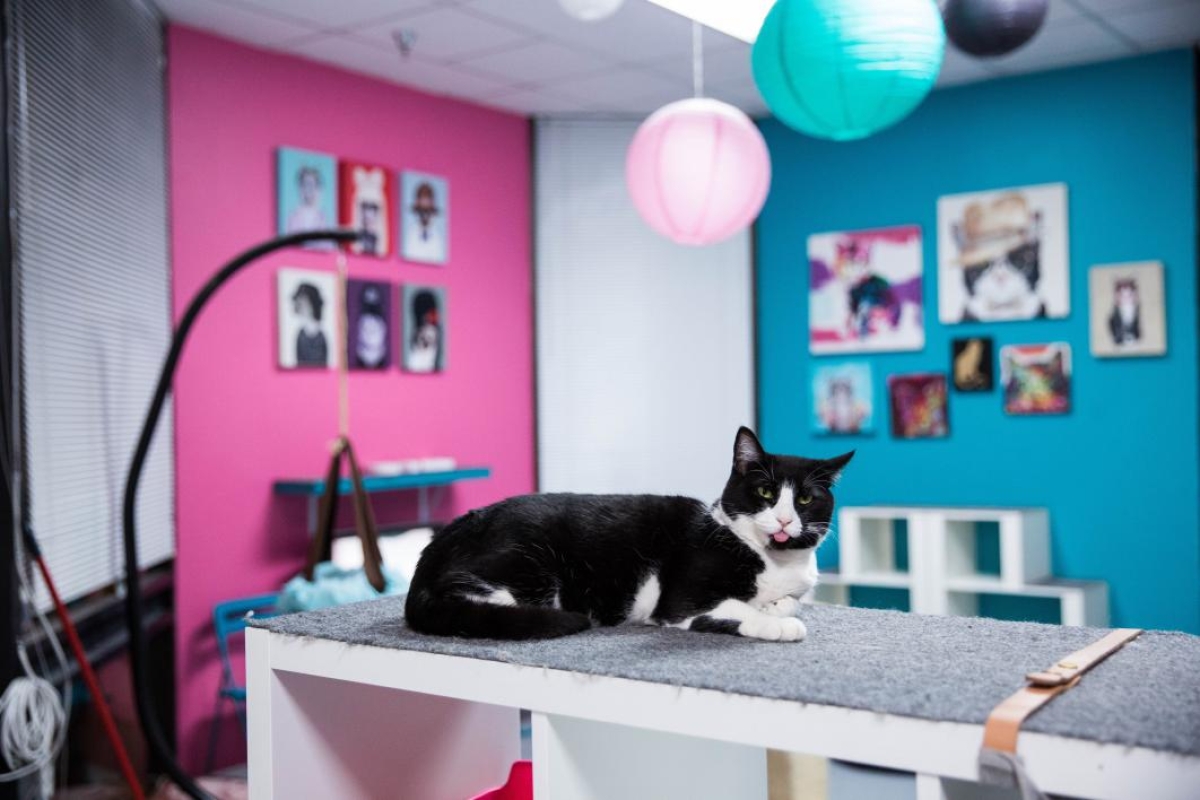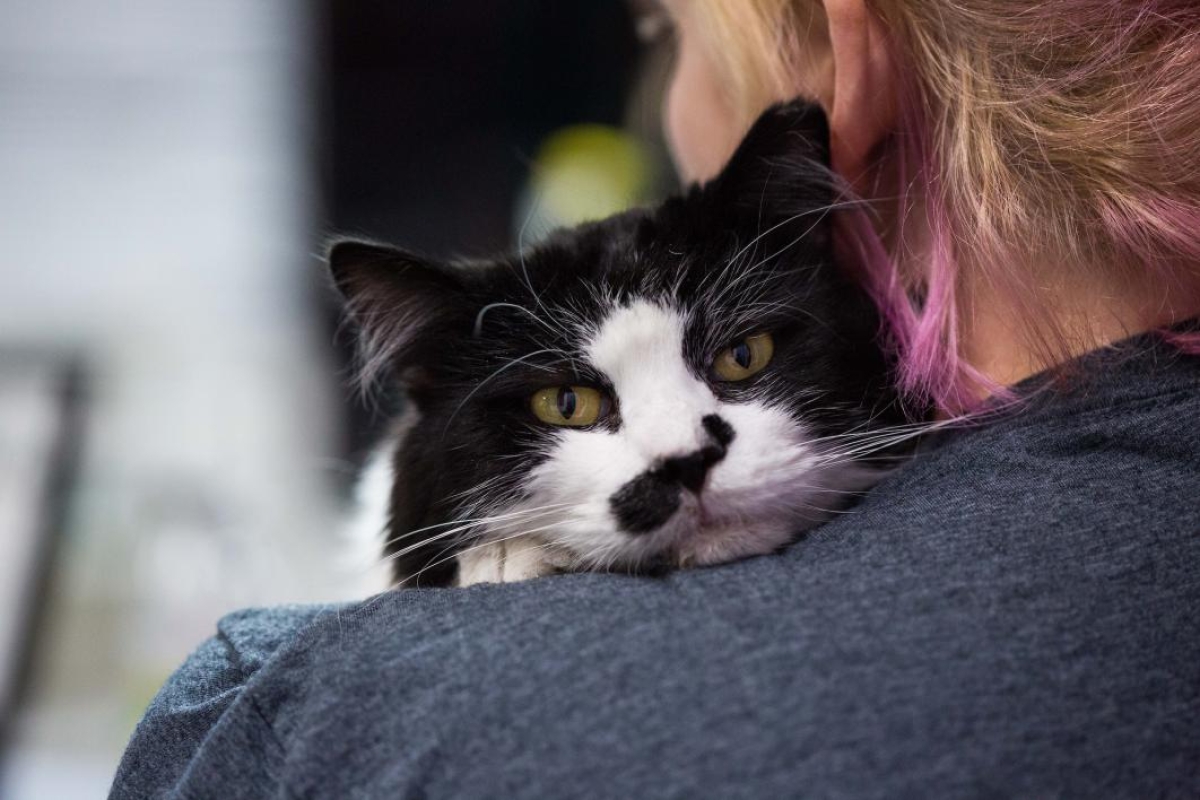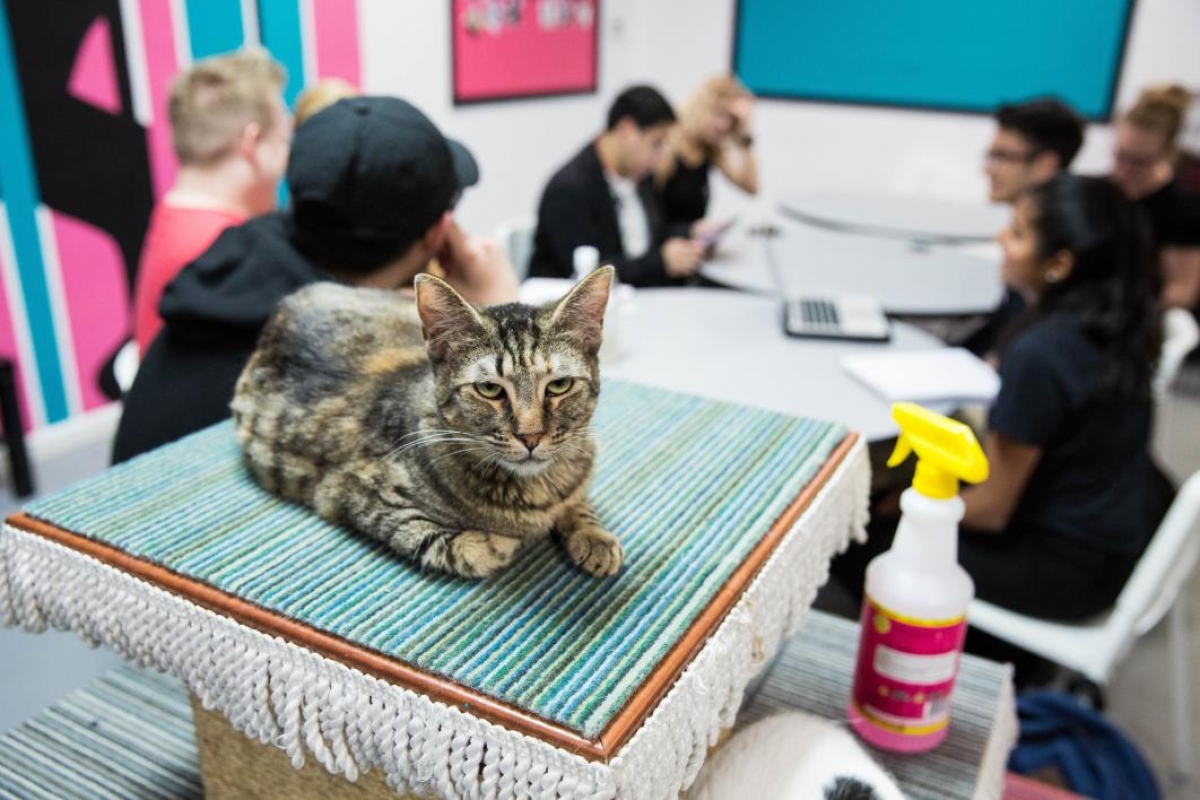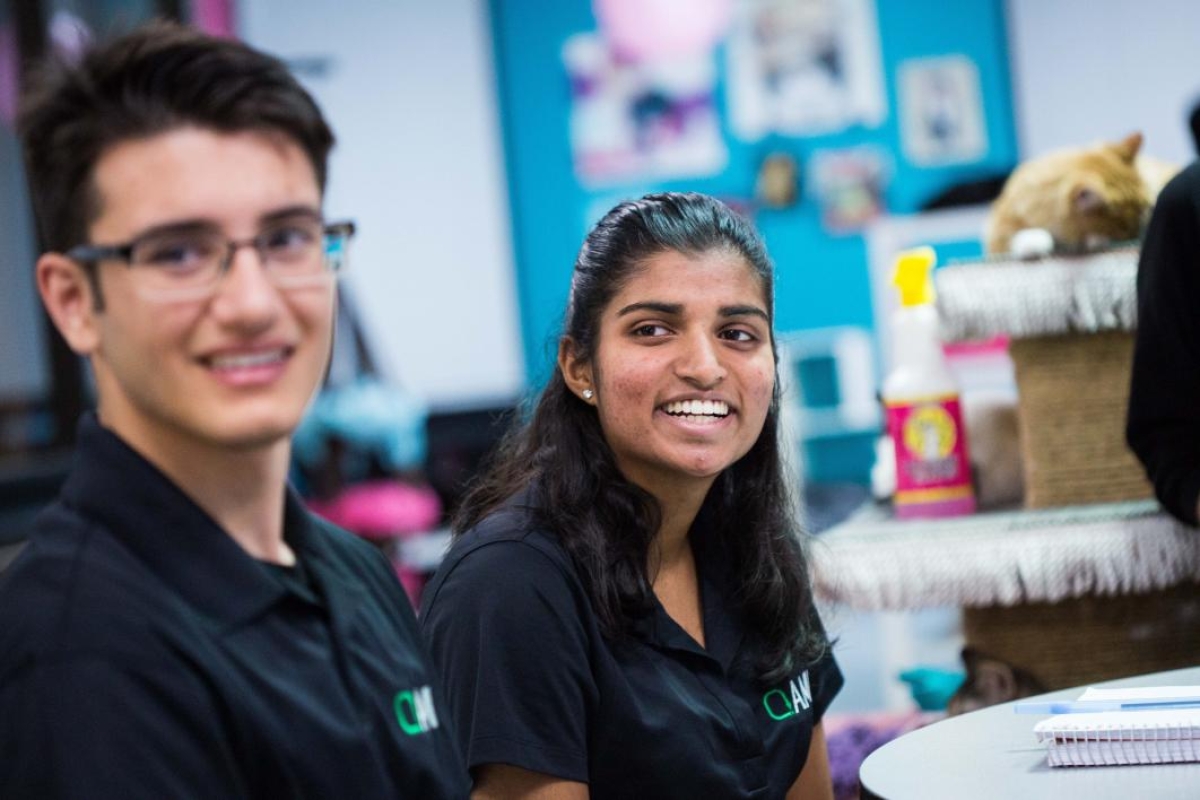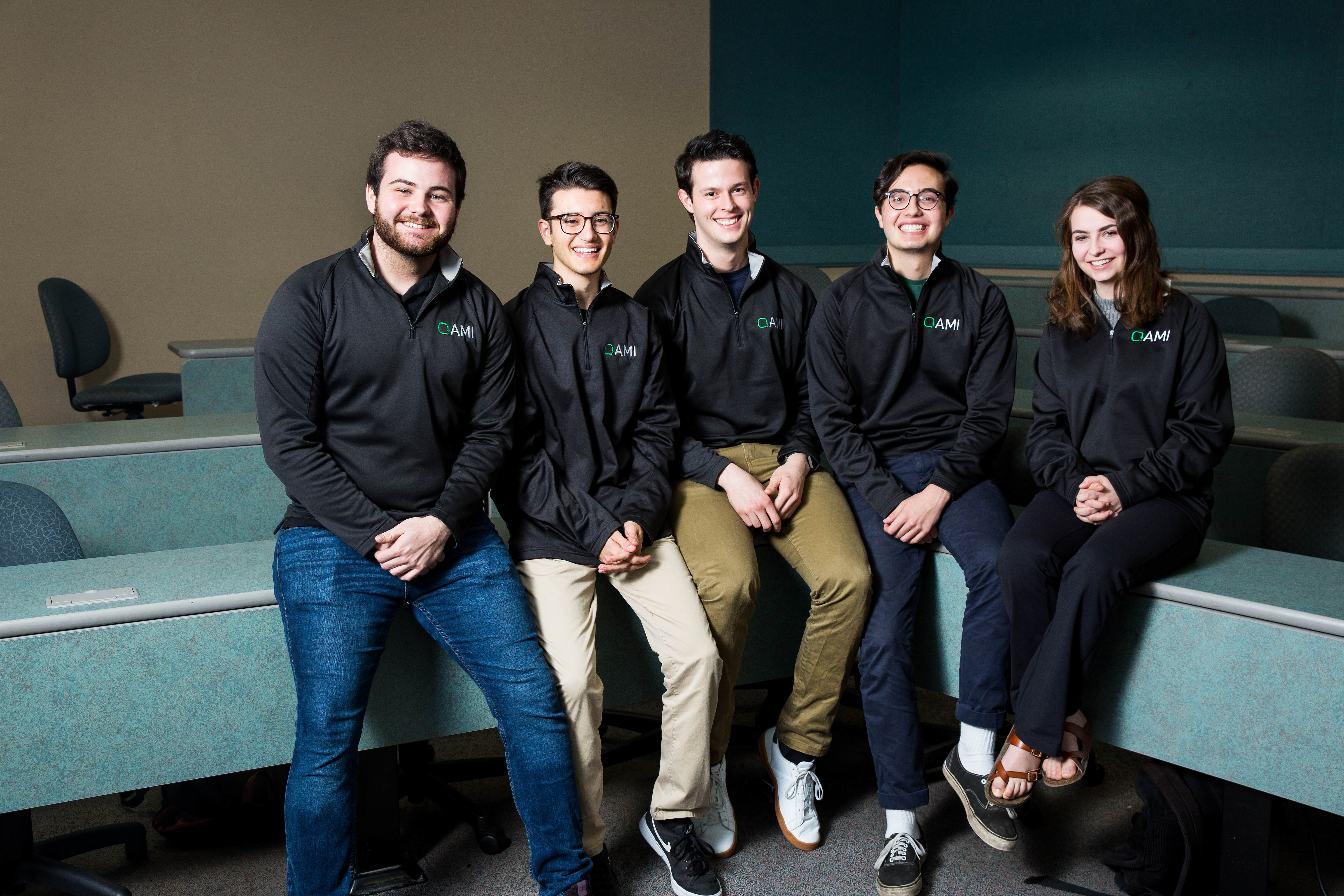Editor's note: This story is being highlighted in ASU Now's year in review. Read more top stories from 2018 here.
Asha Karthik lifts her pen away from the piece of paper she’s writing on, pausing for a moment to let a black and white cat named Charlie Chaplin strut across it. Karthik, a business data analytics freshman at Arizona State University, is sketching up a business-model canvas for La Gattara Cat Lounge and Boutique, a recently opened small business in Tempe where patrons can peruse cat-themed goods, hang out with free-roaming cats in a lounge-like environment and even take one home if they decide they want to adopt.
Charlie — the lounge’s official mascot, who unfortunately is not up for adoption — finds his way into the arms of La Gattara owner Melissa Pruitt where she sits across from Karthik and fellow business major Justin Ferrara. The ASU students are members of Arizona Microcredit Initiative (AMI), a nonprofit organization whose members are all undergraduates (and mostly W. P. Carey School of Business students, though it’s open to all majors). AMI strives to help local, underserved entrepreneurs start and run their businesses.
At that meeting, Karthik and Ferrara were consulting with Pruitt to go over her business plan. The business model Karthik sketched out was a simple block chart with headings like “marketing” and “revenue.”
“The idea behind the business-model canvas,” Ferrara said, “is that it’s always adaptable and you don’t have to put in the effort of writing a 30-page business plan.”
It’s also just a better way to visualize things, Karthik added. “We can more easily illustrate to clients what they need and how we can help.”
Established in 2012 with funding from ASU’s Edson Student Entrepreneur Initiative and the Pakis Foundation, AMI provides services to entrepreneurs through three avenues: business development workshops, one-on-one consulting and microloans.
“What we’re trying to do is assist entrepreneurs and business owners in the Phoenix area and give them the resources and tools that they need to start or grow their businesses,” said Alex Schreck, a finance and economics junior and AMI’s executive director.
Video by Deanna Dent/ASU Now
At a recent meeting of the executive board, Schreck stood behind a podium at the front of a lecture hall in the Business Administration building on the Tempe campus, making updates to a document projected on a screen for all to see, adding and changing notes based on what other board members reported.
Sean Eghlimi, a finance junior and AMI’s director of finance, told Schreck they received a successful payment from a loan client. Ferrara, a finance sophomore and AMI’s director of consulting, reported a tip about a local pool company, and Tanner Scott, AMI’s director of operations who is triple majoring in supply chain management, marketing and business data analytics, said there had been some updates to the website.
Some of these students are fresh out of high school, or else only a couple years removed, but it’s clear they take this venture very seriously. These are the kids who were reading Forbes and Fortune while everyone else was reading "Game of Thrones." Still, as undergraduates in their late teens and early 20s who don’t even have degrees yet but are asking adult business owners to trust their advice, they’ve faced their share of skepticism.
But as students of the most innovative university in the country — many of them also of a business school whose undergraduate programs rank among the top 25 in the nation — they have some pretty useful tools in their toolbelts, Schreck said.
“We’re able to come in with some really detailed questions and some thoughts that they haven’t considered before, and that small push that we’re able to give can be monumental," he said.
“At the same time, it’s a symbiotic relationship because we’re able to take what we’re learning in classes and apply it, test it and build upon our own knowledge. So we’re constantly growing.”
Aside from La Gattara, AMI counts Million Dollar Teacher Project and West Valley vegan grocery store Veggie Rebellion among its success stories.
Million Dollar Teacher Project is an organization aimed at increasing support and compensation for teachers. AMI helped executive director Lloyd Hopkins draft an initial business plan, then continued to work with him as he created partnerships with local schools, ran social media campaigns and fundraisers and successfully presented a full-length business plan to investors.
Veggie Rebellion was both a loan client and a consulting client, meaning AMI provided startup capital as well as advice on marketing strategies and business operations. Its brick-and-mortar store is now up and running in Glendale.
(From left) The AMI executive board members Tanner Scott, Justin Ferrara, Alex Schreck, Sean Eghlimi and Julie Kaplan pose for a portrait during a meeting on Tempe campus. AMI works with local entrepreneurs with business help and microcredits. Photo by Deanna Dent/ASU Now
They make it look easy, but the students of AMI will be the first to tell you it can be challenging balancing their academic obligations with their responsibilities to their clients.
“We’re students, but we also have this mission of empowering the community,” Schreck said. “And that leads to so many unique problems that we have to tackle.”
Luckily, they have a sound support structure within the group. Underclassmen often look to upperclassmen for advice and mentorship, but everyone’s thoughts and opinions are valued.
“What’s really cool about this organization is that if you have an idea or you want to change it for the better or mix things up, there’s no red tape to jump through, there’s no bureaucracy,” said Julie Kaplan, an accounting freshman and AMI’s director of workshops.
“You can have an idea and, more likely than not, you’ll get a team of enthusiastic students who want to work with you to make it happen. The harder we work, the better these entrepreneurs end up. And that’s an experience that I think is really hard to get as an undergraduate.”
On March 21, Pruitt will be taking La Gattara a step further when she pitches it to Venture Devils, a separate entrepreneurial program at ASU, for additional funding. She credits AMI with helping her get to that point.
“They’ve been amazing,” Pruitt said. “They’ve been a tremendous amount of help.”
Top photo: Graphic Information Technology graduate student and La Gattara Cat Lounge & Boutique design consultant Robert Souza (right), lounge owner Melissa Pruitt, and volunteer Austin Nobles (left) speak with members of Arizona Microcredit Initiative about the changes made to their business plan on Feb. 5. Photo by Deanna Dent/ASU Now
More Business and entrepreneurship
Sustainability leader and ASU alum honored for transforming business with a people-first approach
Long before Jim Fish ('86 BS in accountancy) became president and CEO of WM — formally Waste Management — in 2016, he recognized that the higher he climbed the corporate ladder, the greater the…

ASU business students take on the big leagues
Each year, sports fans from across the country flock to Arizona to attend major events like the Waste Management Phoenix Open, Fiesta Bowl and Cactus League Spring Training. These mega-events…

With help from ASU and a viral TikTok, an entrepreneur soars
Nearly five years ago, Ruben Trujillo saw his entrepreneurial dream slipping away as he wondered how he would pay his rent.Now, Trujillo’s business, Café Emporos, is featured on a national TV…


